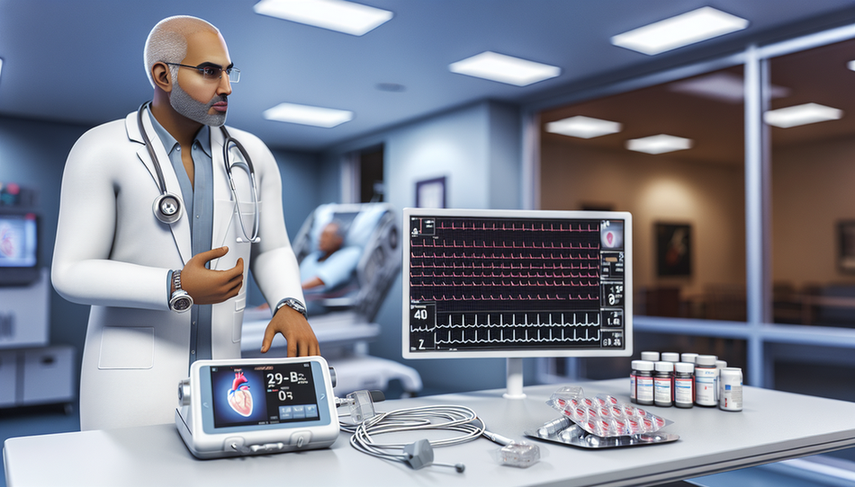Effective Arrhythmia Treatment: Antiarrhythmic Drugs, Beta-Blockers, Amiodarone, Ablation, Pacemakers, and ICDs

Cardiac arrhythmias pose a significant challenge in clinical practice due to their potential to cause severe complications, including sudden death. The treatment of arrhythmias focuses on the use of antiarrhythmic drugs and devices such as pacemakers and implantable cardioverter-defibrillators (ICDs). These therapeutic approaches aim to restore and maintain a normal heart rhythm, thereby improving patients' quality of life.
Diving Deeper into Arrhythmia Treatment
Antiarrhythmic drugs are classified into several classes, each with specific mechanisms of action. Amiodarone, a Class III drug, is widely used due to its effectiveness in preventing ventricular and atrial arrhythmias, although its prolonged use may be associated with significant adverse effects [1]. Beta-blockers, such as propranolol and metoprolol, are effective in managing arrhythmias during pregnancy, providing a safe option for patients [2].
Regarding devices, pacemakers are essential for the treatment of bradyarrhythmias, while ICDs are crucial for preventing sudden death in patients at risk of malignant ventricular arrhythmias [3]. Catheter ablation is another therapeutic strategy that has proven effective, especially in cases of electrical storm, where multiple episodes of ventricular arrhythmias occur in a short period [4].
Conclusions
The management of cardiac arrhythmias requires a multidisciplinary approach that combines the use of antiarrhythmic drugs and devices such as pacemakers and ICDs. Treatment selection should be individualized, considering the specific characteristics of each patient and the type of arrhythmia. Ongoing research and the development of new therapies, such as biological therapies, promise to further improve the management of these complex conditions [5].
Referencias
- [1] Hopes and disappointments with antiarrhythmic drugs.
- [2] Arrhythmias in Pregnancy.
- [3] Management of arrhythmogenic right ventricular cardiomyopathy.
- [4] Multidisciplinary Critical Care Management of Electrical Storm: JACC State-of-the-Art Review.
- [5] Biological therapies for cardiac arrhythmias: can genes and cells replace drugs and devices?.
Created 2/1/2025
